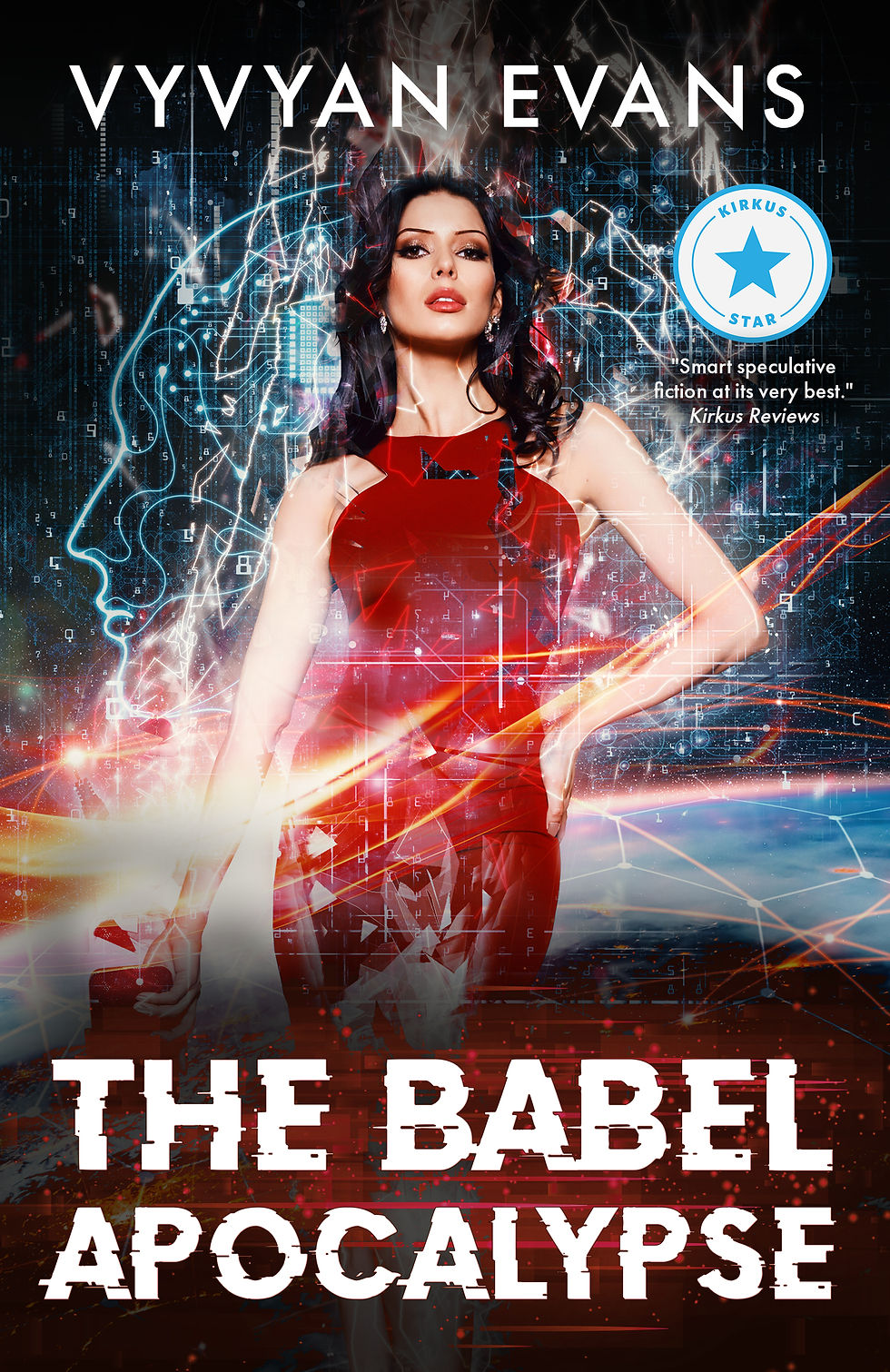What's the Warning Behind The Babel Apocalypse?
- Vyvyan Evans

- Mar 11, 2024
- 2 min read

The Babel Apocalypse is the first in a new series of science fiction novels: Songs of the Sage. The novel is a genre-blending dystopian, sci-fi mystery-thriller that explores the potential dangers of language streaming technology.
It describes a near-future Earth, where language is no longer learned, but streamed to neural implants from internet-in-space low-Earth satellite systems. When a cyberterrorist attack damages the servers in space, this leads to a global language outage. With much of the world’s population no longer able to communicate, catastrophe looms.
The context against which The Babel Apocalypse is set is the World’s Fourth Industrial Revolution, or 4IR. We currently stand on the brink of a new technological revolution, involving connectivity, smart AI and the Internet of Things. This will lead to a transformation in scale and complexity that humans have not witnessed previously. We don’t yet know how things will play out, but we can make some pretty educated guesses—which is the point of the novel, especially in terms of the future of language and communication.
First, the novel takes the advent of implantable neuroprosthetic technology, and imagines the very real possibility that within the next 100 years, the hallmark of what it is to be human—language—an ability that our species alone possesses, will be replaced by AI. Such a development would call into question what it means to be human.
Second, The Babel Apocalypse explores the consequences of humans “giving up” on language, offloading language learning, allowing AI to take over. The consequence of this, according to the novel, is that language will become a commodity (like any other, such as movies, music, and so on, that we currently stream on demand, for a fee), controlled for and by big tech, in service of shareholders and corporate interests.
The novel then predicts that this leads to a slippery slope of issues ranging from potential censorship, control of thought, and even, through cyberterrorism, the prospect of an existential crisis for the human race. This is manifested in several ways in the book, notably a global language outage, which prevents large numbers of people from being able to communicate.
Hence, the book, calls into question what it means to be human, should AI be allowed to replace previously fundamental aspects of the human experience, and points to potential abuses of what we previously assumed to be a human birth-right.










